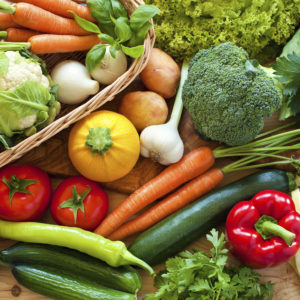For some of us, the option for organic produce just isn’t an option. Whether it’s a monetary deal or geographic location, sometimes the supermarket is the only option. But certain care should be considered with fruits and veggies that may have a little more on them than dirt. A lot of the produce you buy in the store can have traces of pesticides and waxes on the exterior, extras that you probably don’t want going into your stir fry or fruit salad. Here are some reasons why you should definitely be washing the produce you bring home.
It’s important to keep in mind that before you bought that apple or pepper, it was probably touched by a lot of people and even just one of those people’s germs could make you sick. This is especially the case if you don’t plan on cooking or peeling it. Washing your fruit beforehand can help rinse away all the bad bacteria that can accumulate on your fresh produce.
And then there are pesticides. The argument over whether they’re really bad for you or not bad enough to do any serious harm has been going on for a long time. We think, why take the risk? If rinsing your produce can help reduce your chance for cancer or other serious illnesses, we’d rather do a bit of extra effort. There are some that are known to be worse than others. Definitely remember to wash the following: celery, strawberries, nectarines, cucumbers, kale, lettuce, apples, bell peppers, spinach, grapes, peaches, potatoes and green beans. You can learn more about washing produce here.
Last but not least, a lot of the vegetables you know and love are grown in the ground. Do you know what that means? Sand and dirt and bugs and things that you don’t want guests biting into at your dinner party. Although the sand and dirt probably won’t hurt you, it’s not very much fun to find while eating. Doing a quick rinse, especially with celery, leeks, green onions and any leafy greens, will help get rid of those pesky things.


